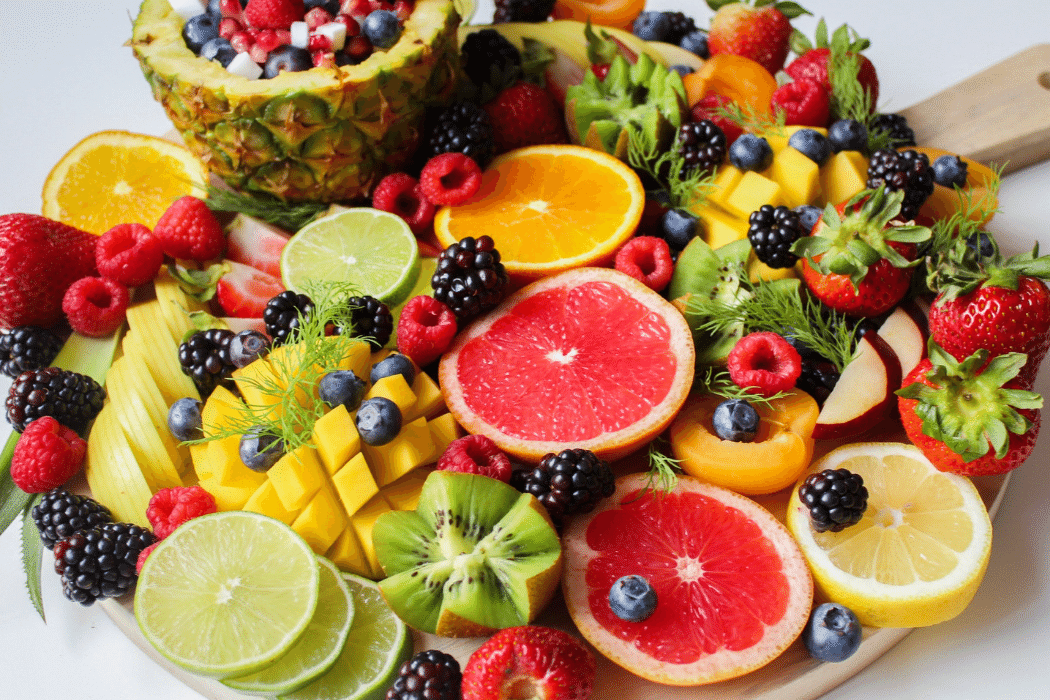Spring is finally here bringing with it longer days and hopefully some better weather. I find the change of seasons the best time to do a little overhaul of diet and lifestyle habits. And what better way to start than with a little spring clean of your diet ready for some new healthier habits when it comes to cooking and eating.
Follow these six steps to refresh your diet this Spring.
- Start with your kitchen
Make some time to physically give your food prep space a bit of a clean, tidy and organise. Having a calm and fresh space to make food will help you feel more motivated. Go through your fridge, freezer and cupboards, throw out any food which is past its sell-by date and take an audit of what you have left. We often buy ingredients for a specific recipe which then sit in our cupboards for weeks, months or even years…make a note of what you have so as you move on to step 2 you can make sure that random spice mix of packet or grains actually gets used rather than being wasted.
It’s also worth exploring the kinds of food you have in your kitchen. Are you relying on lots of processed or convenience foods or are you preparing fresh meals? Cooking from scratch may sound daunting but it doesn’t have to be as we’ll discuss in step 4. But this simple shift will have a huge impact on not only your skin health but your overall wellbeing too.
- Get organised
Next, spend some time getting organised with meal planning and writing a shopping list. Remember to prioritise the ingredients you already have in your cupboards, dig out those cookbooks or search online for recipes using the ingredients you already have - topped us with some fresh food too of course. Meal planning is one of the best ways to ensure you’re eating a healthy balanced diet. Trying to make a decision about what to eat at the end of a long working day is hard in itself, let alone then realising you don’t have the ingredients you need to cook what you want. Having meals planned and the ingredients ready to go not only avoids this kind of decision fatigue which may well leave you reaching for the take-out menu, it can also avoid food waste - so long as you stick close to your menu plan.
- Eat seasonally
Not only is it better for the environment to eat seasonal produce, but generally as the produce is fresher and hopefully has not been transported under harsh conditions to try and keep it fresh, the nutrient content should also be higher.
Seasonal eating also encourages us to step outside our comfort zone with the types of fresh fruit and vegetables we’re consuming. Many of us will get into habits with food and find ourselves eating the same thing day in, day out but we know variety is key to support both gut bacteria - a healthy gut is essential for skin health, but it also helps boost our intake of health boosting vitamins and minerals and keeps our taste buds interested and excited!
Why not try a local veg box delivery service to help you consume more seasonal, local, fresh produce and try some new varieties of fruit and veg into your diet too.
- Eat a rainbow
As I mentioned above, variety is key when it comes to gut health and overall wellbeing. One of the easiest ways to incorporate a variety of fruit and veg is to focus on eating a rainbow of colours. Vegetables aren’t all green! Different coloured fruits and vegetables all have different benefits, as we can see below so getting a mix of them all is key for overall well being.
Red (tomatoes, peppers, apples, berries, watermelon etc) contain Vitamins A and C as well as antioxidants like quercetin and lycopene. These nutrients help support heart health, decrease inflammation, support the immune system and boost the health of our skin, hair, nail and eyes.
Green (broccoli, cabbage, cucumbers, courgettes, apples, pears, green beans etc) contain high levels of vitamin K, B-vitamins, folate, potassium, magnesium and antioxidants chlorophyll, carotenoids and lutein. These nutrients help support energy production, detoxification and liver health, heart health, and can even help lower blood pressure.
Orange/yellow (peppers, carrots, squash, sweet potatoes, oranges, melon, pineapple, peaches) contain vitamin C, vitamin A, potassium, folate and B6 as well as antioxidants beta-carotene, and lutein. These nutrients help support heart health, boost immunity, decrease inflammation and promote healthy hair, skin, nails and eyes.
Blue/purple (aubergine, red onions, purple cabbage, beetroot, berries, plums, grapes) contain good levels of B-vitamins and are bursting with anti-ageing antioxidants like resveratrol, flavonoids and anthocyanins. These can reduce the risk of heart disease and cancer as well as protect cells from damage that can cause ageing.
- Cook from fresh
It’s easy to become reliant on ready meals and convenience foods, but preparing food from scratch will give your body the best nourishment. Not only are nutrient levels higher, but there are less additives, preservatives and hopefully less sugar and salt.
Cooking from scratch doesn’t need to be a challenge or stress. Preparation is key (see point 2) plan your meals, get your shop in and make time to prepare and eat food (see point 6). Food is the fuel our body needs to function and heal, if we don’t invest time and energy in our food now we will feel the consequences down the line and see it in our skin health if you’re not already.
Batch cooking can mean you don’t have to cook everyday but you still have something fresh to eat. There are some shortcuts and pre-prepared food it’s fine to incorporate into a healthy diet like pre-chopped frozen or fresh vegetables or packets of cooked produce like quinoa, rice, lentils and even pre-cooked meat and fish. Try to make cooking from scratch easy for you and you’ll find it’s no more effort than popping a microwave meal in the oven and will help you feel so much better inside and out.
- Eat more mindfully
It’s not just about what we eat but how we eat that’s important when it comes to wellbeing. It’s not great for our digestion to eat quickly, while distracted (e.g. while working/on our phones/watching TV) or while moving around. Eating in a mindful way helps ensure we focus on our food, we’re more likely to chew food thoroughly to start and aid digestion and less likely to gulp down air which can cause bloating and reflux. We’re also more likely to notice the cues from our body that we’re full and therefore less likely to over eat.
When we’re busy and stressed we can often grab food on-the-go, or eat something quick and easy simply to satisfy our hunger, not thinking about what it is our body needs. The reality is when we’re stressed and busy our body needs a regular supply of energy and mood balancing foods which deliver the nutrition we need to better handle those stress levels. Fresh produce, prepared with love and eaten mindfully so it’s digested and the nutrients absorbed easily to support us through the stress.
What healthy habits are you hoping to create this Spring?





